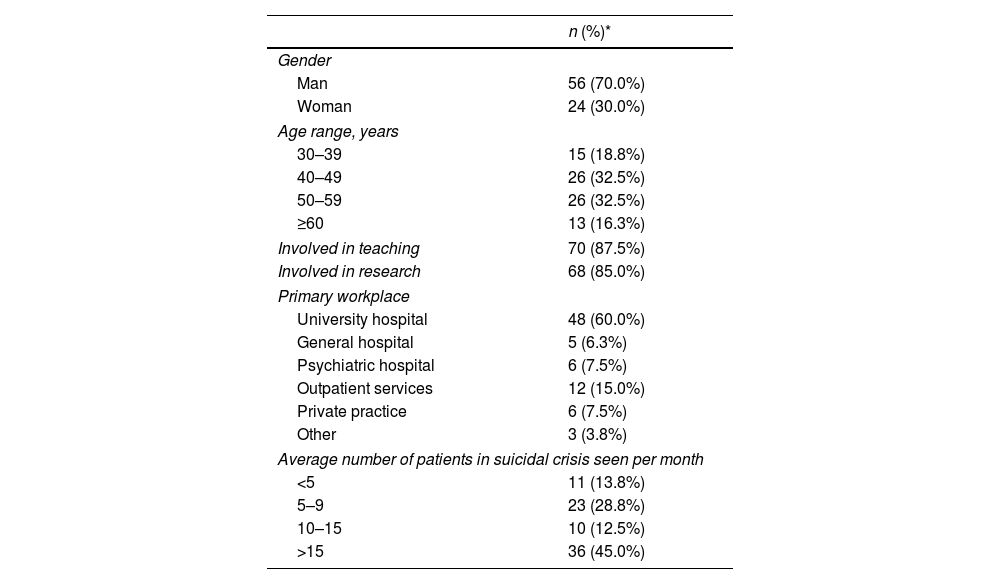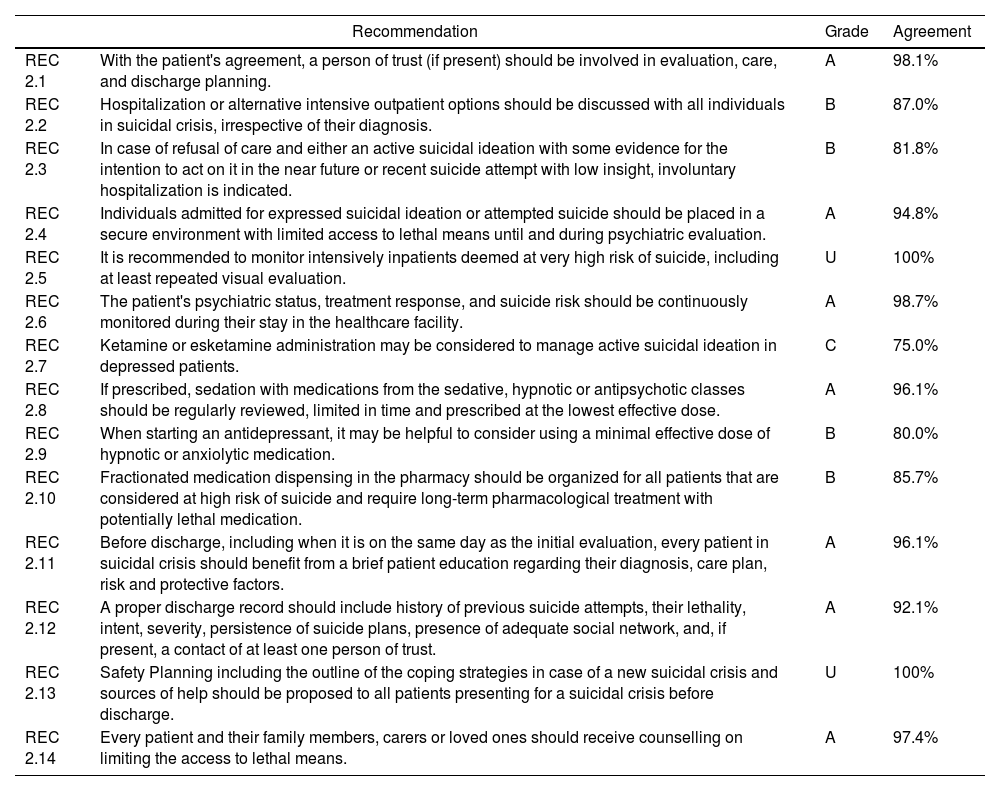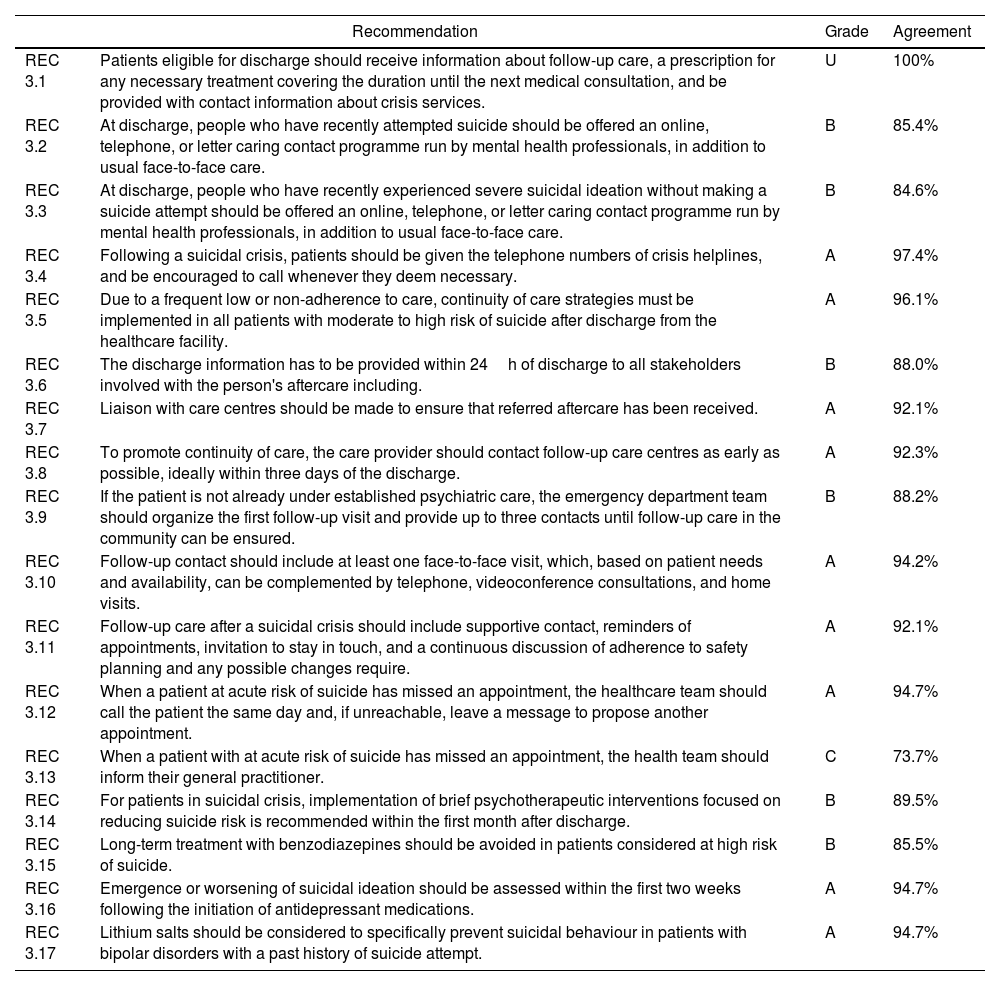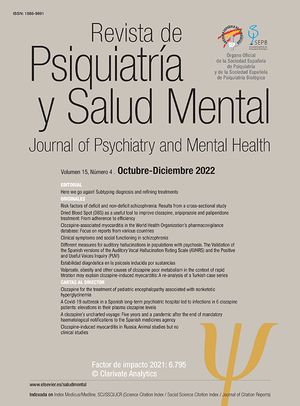Managing patient with suicidal thoughts and behaviours presents significant challenges due to the scarcity of robust evidence and clear guidance. This study sought to develop a comprehensive set of practical guidelines for the assessment and management of suicidal crises.
Materials and methodsUtilizing the Delphi methodology, 80 suicide clinician and research experts agreed on a series of recommendations. The process involved two iterative rounds of surveys to assess agreement with drafted recommendations, inviting panellists to comment and vote, culminating in 43 consensus recommendations approved with at least 67% agreement. These consensus recommendations fall into three main categories: clinical assessment, immediate care, and long-term approaches.
ResultsThe panel formulated 43 recommendations spanning suicidal crisis recognition to continuous long-term care. These guidelines underscore systematic proactive suicide risk screening, in-depth medical and toxicological assessment, and suicide risk appraisal considering personal, clinical factors and collateral information from family. The immediate care directives emphasize a secure environment, continuous risk surveillance, collaborative decision-making, including potential hospitalization, sensible pharmacological management, safety planning, and lethal means restriction counselling. Every discharge should be accompanied by prompt follow-up care incorporating proactive case management and multi-modal approach involving crisis lines, brief contact, and psychotherapeutic and pharmacological interventions.
ConclusionsThis study generated comprehensive guidelines addressing care for individuals in suicidal crises, covering pre- to post-discharge care. These practical recommendations can guide clinicians in managing patients with suicidal thoughts and behaviours, improve patient safety, and ultimately contribute to the prevention of future suicidal crises.
Artículo
Comprando el artículo el PDF del mismo podrá ser descargado
Precio 19,34 €
Comprar ahora













